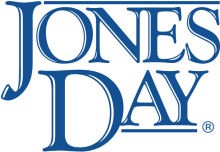Spring 2024
Philosophy
Durham University
Which were the most enjoyable – and most challenging – aspects of the scheme?
The most enjoyable aspect of the vacation scheme was walking the floors to get work. The scheme at Jones Day allows you to experience their unique non-rotational training system by knocking on the doors of lawyers’ offices across all departments to get involved in live client work. Everyone was very approachable and this experience helped me to learn from each individual about their experience at the firm, their day-to-day life and practice area. It was an invaluable experience to hear from people who’ve been in your shoes and then take on board their advice about how to approach the scheme.
The most challenging aspect of the vacation scheme was ensuring that you’re effectively balancing the amount of work you're taking on and meeting deadlines. I was able to test my time management skills throughout the scheme, which is crucial to the training system at Jones Day. Allocating my time efficiently around my schedule allowed me to juggle my workload and complete tasks to the best of my ability.
Was the vacation scheme what you expected? Did the vacation scheme live up to your expectations?
Jones Day’s vacation scheme surpassed my expectations. Coming from a non-law background, I entered the scheme without any preconceived ideas or preferences regarding different practice areas, which meant I learned so much in a short amount of time. As you're working on live client work, whether it's attending client calls or proofreading agreements, you quickly pick up the demands of a commercial solicitor and understand a trainee’s role in the transaction or case, which is hugely varied.
What’s the most important thing you learnt about the firm while on the scheme?
After the vacation scheme, I totally understood the ‘One Firm Worldwide’ ethos at Jones Day. In the two weeks I spent at the firm, what stuck with me most was how the firm seamlessly works as a team. The client has the whole of Jones Day behind them, collaborating to ensure the client's needs are met. The firm is a single partnership and really emphasises the importance of relationships, not only within the London office, but also globally. I didn't truly understand that until I started the vacation scheme and saw the collegiate environment for myself.
Did your attendance on the scheme support your application for a training contract?
At Jones Day you have to attend the vacation scheme to be considered for a training contract. I think this is beneficial in two ways. Firstly, it means that Jones Day can see for themselves whether you have the skills required to succeed as a trainee. A big part of this is navigating the non-rotational training system and seeing whether you can thrive in this sort of working environment. Secondly, this structure is also beneficial for candidates because the vacation scheme gives you time to determine whether it's the right fit for you and the type of training you want. It really is a two-way process.
What’s one piece of advice you’d pass on to future vacation schemers?
My advice to future vacation schemers would be to throw yourself into the scheme. Don’t be scared of failure. I think the people who tend to thrive are those who don’t go in with any motivation besides learning as much as possible. Speak to as many people as possible, don't be scared to take on work from practice areas that you haven't experienced before and give everything a try. Even if you don't secure a training contract, you'll have learnt so much just from giving things a go on the scheme and getting involved in new experiences. If you truly enjoy the experience, you’ll get the most out of the scheme and are more likely to get the end result that you desire!


